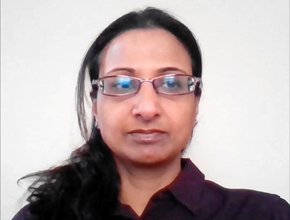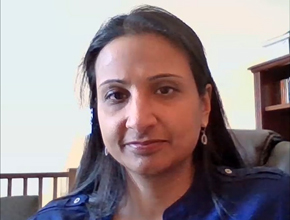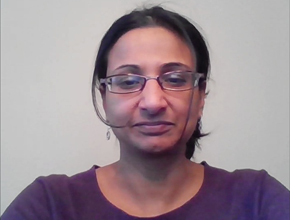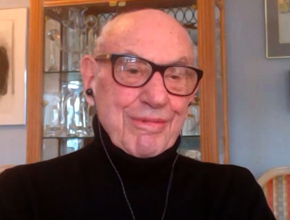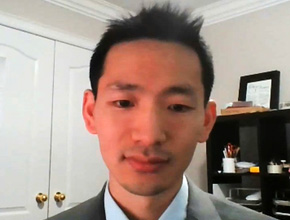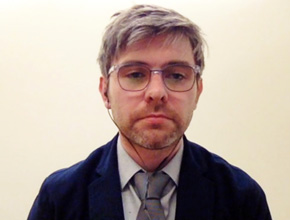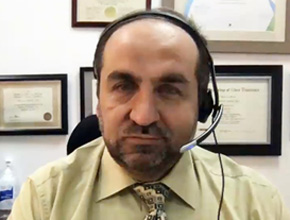Dr Nishma Singhal, associate professor in the Divisions of Infectious Diseases and General Internal Medicine at McMaster University, talks to Dr Roman Jaeschke about 2019 novel coronavirus (2019-nCoV).
For the February 14 update, click here. For the February 4 update, click here.
Roman Jaeschke, MD, MSc: Welcome to another edition of McMaster Perspective. I would like to introduce to you an infectious disease specialist from Hamilton, Dr Nishma Singhal, who is—or will be—at the center of interest in the context of the new coronavirus.
Doctor Singhal, what kind of questions do you hear these days about that disease?
Nishma Singhal, MD: Certainly the most common question is, “Do we need to worry about the new 2019 novel coronavirus?” We have lots of people who travel back and forth from China and Canada and we are likely to be seeing cases. We have had our first 2 cases documented or confirmed in Toronto to date and we expect that we will see more. We certainly have to investigate more, but it’s an evolving infection and the epidemiology is evolving as well.
Right now it’s hard to say what the situation will be in Canada. A lot of people are worried about the degree of contact or exposure that they need to have in order to potentially be exposed and be at risk. It seems that it’s closer contact, so walking past someone in the grocery store or out on the streets is not likely to be infectious at the moment, from everything we know. With Toronto Public Health monitoring the international situation, and with so much monitoring [in general], our hopes are that we will be able to contain this with appropriate contact tracing. But as I said, it is evolving right now.
I don’t think there is a need for us to panic or to be overly concerned, but it does require some due diligence with regards to keeping on top of the situation. If someone does have symptoms and has come from the Wuhan area or Hubei province in China, it’s important that they seek medical attention, warn any medical personnel that they are coming, and be very forthcoming about their travel history and the potential exposures.
Roman Jaeschke: How severe is this disease from what we know so far? Could you somehow place it in comparison, for example, to influenza?
Nishma Singhal: The influenza case-fatality rate is hard to pinpoint, because it really does depend on whether it is a pandemic or an epidemic and a new strain. The fatality rate does vary from 0.1% to 2% depending on the situation, the year, and the actual circulating strain. Right now we don’t know what the denominator is for the novel coronavirus.
Roman Jaeschke: We don’t know how many people have acquired the infection.
Nishma Singhal: Right. We do not know the exact denominator in terms of how many people are infected. We have reports coming out and it seems to be in the order of around 4000 people to date that they know of that are confirmed, but there is a number of people that are under investigation and that they’re doing contact tracing with. What we also don’t know is if there are individuals who might have had a very mild infection or whether they could have asymptomatic disease. The incubation period seems to be up to potentially 14 days.
So right know we don’t know what our baseline numbers of people who are infected are, and it is hard to calculate how many people are getting severe disease and what percent of those are potentially dying. Up till now there seem to be just over about 100 deaths reported internationally, so it certainly would be lower than for the Middle East respiratory syndrome (MERS) coronavirus and potentially lower than for the severe acute respiratory syndrome (SARS) coronavirus, but given that it’s an evolving situation, I don’t think we know for sure right now.
Roman Jaeschke: These hundred deaths occurred among 4000 people who presumably had a detectable disease, that is, more severe than the asymptomatic—or carrier—stage, so it’s still within the range of other major viral diseases.
You mentioned that people who have a disease should seek medical advice. At the same time, the experience from SARS and MERS tells us that the biggest transmission was actually occurring in the health-care settings. Should we be calling in or should we be getting in the health-care system?
Nishma Singhal: If you have mild symptoms, it might be important to call your physician and stay at home, trying to avoid exposing other individuals. If you do need testing and confirmation, then right now the only place where we can do that is at the emergency units in hospitals. I think the most important thing would be to call them in advance if you do feel you need to seek medical attention and give them a warning, so that they can use the appropriate precautions when you arrive and contain the situation. Right now we are using airborne precautions, given that we don’t know exactly how the virus is spread, so we can initiate those right away if we have that information when you are coming in the emergency room.
If you are not that sick, certainly stay at home; again, it would probably be important to stay at home and not increase the amount of people that you’re exposing to the virus.
Roman Jaeschke: What kind of symptoms should we be looking for? That’s my last question. What should point attention to the potential disease?
Nishma Singhal: In the early reports based on some of the publications on the first wave of the infection, about 97% of individuals that they have documented had a fever, and that would be the most common symptom. From 60% to 70% of people had a cough, so I think that’s the second most common symptom.
What you also want to monitor for is developing things like shortness of breath. Apparently if you are at that stage, we know that this can cause pneumonia and it might be the early sign that you’re getting a more severe disease and that you do need to seek medical attention. So one of the more concerning symptoms is when you start to develop shortness of breath.
Roman Jaeschke: Doctor Singhal, I think it’s very useful practical advice. I would like to thank you and maybe we will continue with those interviews as the time progresses. Thank you very much for joining us
Nishma Singhal: You’re welcome.
 English
English
 Español
Español
 українська
українська

